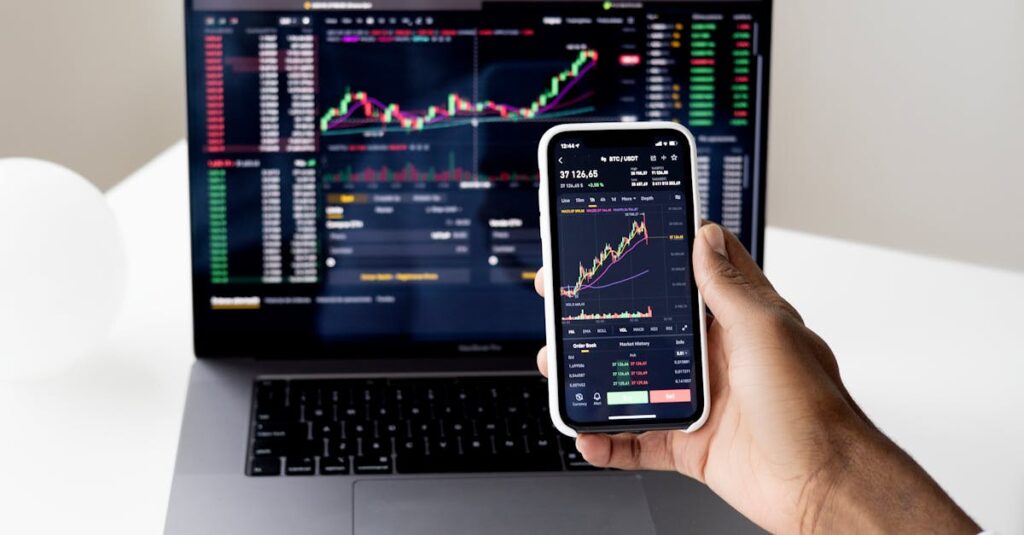As a seasoned investor, I know the importance of understanding every aspect of the financial world. One key concept that can greatly impact your investments is currency risk. In this financial glossary, I’ll break down what currency risk is and how it can affect your portfolio.
Currency risk refers to the potential for losses arising from fluctuations in exchange rates. It’s crucial to grasp this concept to make informed decisions when investing in foreign markets. Stay tuned as I delve deeper into the nuances of currency risk and provide you with valuable insights to navigate this aspect of the financial landscape.
Key Takeaways
- Currency risk refers to potential losses due to exchange rate fluctuations when investing in foreign markets. Understanding this risk is crucial for making informed investment decisions.
- Exchange rates determine the value of currencies relative to each other and can significantly impact investment returns, necessitating monitoring and analysis.
- Fluctuations in exchange rates can affect investment returns in foreign currencies; strategies like diversification and hedging can help manage currency risk.
- Mitigating currency risk involves diversifying investments across various currencies and regions, using hedging strategies, monitoring economic indicators, and regularly reviewing and rebalancing portfolios.
What is Currency Risk?
Currency risk refers to the potential for losses that can occur when investing in foreign markets due to fluctuations in exchange rates. As an investor, it’s crucial to understand that changes in currency values can impact the overall returns on your investments.
When investing internationally, currency risk arises because foreign currencies can appreciate or depreciate against your home currency. This means that even if your investments perform well in their local currency, you could still experience losses when converting those gains back into your own currency.
To mitigate currency risk, investors often use strategies such as hedging or diversifying their portfolios across different currencies. However, it’s essential to weigh the potential costs and benefits of these strategies carefully.
Understanding currency risk is key to making informed investment decisions, especially when venturing into global markets. By being aware of the factors that influence exchange rate movements, investors can better navigate the complexities of international investing and strive to protect their portfolios from adverse currency fluctuations.
Understanding Exchange Rates
Exchange rates are critical in the world of investing as they determine the value of one currency relative to another. Fluctuations in exchange rates can significantly impact investment returns, especially when dealing with foreign markets. A stronger home currency can reduce the value of investments denominated in foreign currencies when converted back. On the other hand, a weaker home currency can enhance the value of those investments.
It’s essential to keep a close eye on exchange rate movements to anticipate how they may affect investment returns. Understanding how currencies interact and the factors influencing their values is key to making informed investment decisions. Currency exchange rates are influenced by various factors such as economic indicators, geopolitical events, interest rates, and market speculation.
As an investor, staying informed about these factors and their potential impact on exchange rates is crucial. Being able to analyze and interpret exchange rate movements empowers me to make strategic decisions to minimize currency risk and maximize investment returns in foreign markets.
Impact of Currency Risk on Investments
When investing globally, it’s crucial to understand the impact of currency risk on your investments. Fluctuations in exchange rates can significantly affect the returns on your investments denominated in foreign currencies. A stronger home currency can decrease the value of these investments when converted back, potentially leading to lower returns.
Conversely, a weaker home currency can work in your favor by increasing the value of your investments in foreign markets when exchanged back into your local currency. This means that you could potentially profit from the currency exchange rate movements, enhancing your overall investment returns in global markets.
Monitoring currency fluctuations and staying informed about the factors influencing currency values are essential steps in managing currency risk in your investment portfolio. Economic indicators, geopolitical events, interest rates, and market speculation are among the key factors that can impact currency exchange rates. By analyzing and interpreting these factors effectively, you can strategically minimize currency risk and maximize your investment returns in the global financial landscape.
Diversification of investments across various currencies and regions can also help in mitigating the impact of currency risk and providing a balanced exposure to different market conditions. Stay informed and make informed decisions to navigate the complexities of currency risk and optimize your investment strategies for long-term financial growth.
Mitigating Currency Risk in Your Portfolio
When it comes to mitigating currency risk in my portfolio, diversification is key. I spread my investments across different currencies and regions to reduce exposure to fluctuations in exchange rates. This strategy helps minimize the impact of a single currency’s depreciation on my overall portfolio value.
Another effective way I manage currency risk is by hedging. By using financial instruments like forward contracts or options, I can protect my investments from adverse currency movements. While hedging may involve additional costs, it provides a sense of security and stability in a volatile market environment.
I also keep a close eye on economic indicators and geopolitical events that can influence currency values. Being aware of global economic trends and potential risks allows me to make informed decisions regarding my portfolio allocations.
Moreover, I regularly review and rebalance my portfolio to ensure that my currency exposure aligns with my risk tolerance and long-term investment goals. By staying proactive and adapting to changing market conditions, I can optimize my portfolio performance and navigate currency risk effectively.
diversification, hedging, monitoring, and rebalancing are essential strategies I employ to mitigate currency risk in my portfolio and enhance the resilience of my investments in the global market.
Conclusion
Mitigating currency risk is vital for optimizing investment portfolios. Diversification and hedging are key strategies to minimize exposure to exchange rate fluctuations. By monitoring economic indicators and geopolitical events, informed investment decisions can be made. Regular portfolio reviews and rebalancing help align currency exposure with risk tolerance and long-term goals. Stay proactive in managing currency risk to enhance portfolio performance in global markets.
Frequently Asked Questions
Why is mitigating currency risk important in investment portfolios?
Mitigating currency risk is crucial to safeguard the value of investments from exchange rate fluctuations, which can impact returns negatively.
What are the key strategies to reduce exposure to currency risk?
Diversification across different currencies and regions is vital, along with using hedging techniques like forward contracts or options for protection.
How can investors protect their investments from adverse currency movements?
Investors can shield their investments by utilizing hedging tools such as forward contracts or options, despite potential additional costs.
What role do economic indicators and geopolitical events play in managing currency risk?
Monitoring economic indicators and geopolitical events is essential to stay informed and make strategic investment decisions in global markets.
How often should investors review and rebalance their portfolios to manage currency risk effectively?
Regular portfolio reviews and rebalancing are recommended to align currency exposure with risk tolerance and long-term goals, optimizing portfolio performance.



